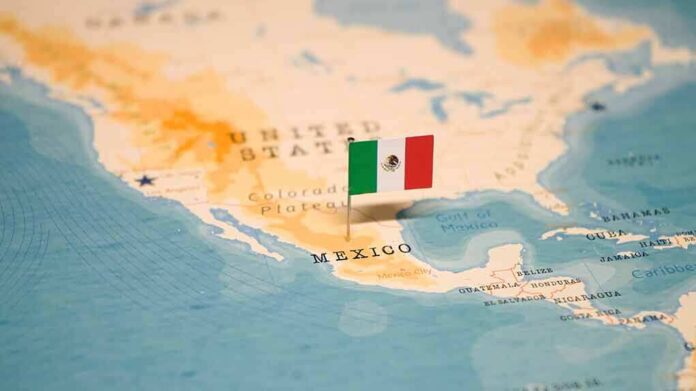
At a Glance
- López Obrador blames U.S. operations for recent surge in Sinaloa cartel violence
- At least 30 people have died in the past week due to clashes between cartel factions
- Violence erupted after the arrest of key cartel figures in the U.S. in late July
- López Obrador’s “hugs not bullets” strategy faces criticism as violence continues
- Tensions between U.S. and Mexico escalate over unilateral actions and lack of communication
Mexican President Blames U.S. for Sinaloa Bloodshed
In a startling turn of events, Mexican President Andrés Manuel López Obrador has publicly accused the United States of being responsible for the recent surge in cartel violence that has terrorized the northern state of Sinaloa. The president’s comments come in the wake of a bloody week that has left at least 30 people dead and an entire region living in fear.
López Obrador’s accusation stems from the U.S. capture of key Sinaloa cartel figures, including Joaquín Guzmán López and Ismael “El Mayo” Zambada, near El Paso, Texas, in late July. The Mexican leader claims these arrests, particularly that of Zambada, were carried out illegally and without proper communication with Mexican authorities, leading to destabilization and increased violence in the region.
Mexican president blames the U.S. for bloodshed in Sinaloa as cartel violence surges https://t.co/aF9ixKHbFw
— The Washington Times (@WashTimes) September 20, 2024
Cartel Violence Escalates, Citizens Live in Fear
The aftermath of these arrests has been devastating for the people of Culiacán, the capital city of Sinaloa. Gunmen have terrorized the city of 1 million, forcing schools to close and businesses to shut down early. The streets, once bustling with life, now stand eerily empty as few dare to venture out after dark.
“Where is the security for our children, for ourselves too, for all citizens? It’s so dangerous here, you don’t want to go outside,” one Culiacan mother told reporters, highlighting the fear gripping the community.
The violence has escalated to such a degree that the Mexican military has been forced to deploy helicopters and ground troops in the northern part of Culiacán. Families are hiding in their homes, terrified of being caught in the crossfire between warring cartel factions and security forces.
U.S.-Mexico Relations Under Strain
López Obrador’s accusations have added fuel to an already tense relationship between the United States and Mexico. The Mexican president has criticized the lack of communication and collaboration from the U.S. in such operations, stating, “There cannot be a cooperative relationship if they take unilateral decisions.”
“Yes, of course … for having carried out this operation,” López Obrador said, directly attributing blame to the U.S. for the current crisis. He further claimed that the operation to capture Zambada was “totally illegal, and agents from the Department of Justice were waiting for Mr. Mayo.”
This diplomatic tension comes at a time when both nations are grappling with the ongoing challenges of drug trafficking and cartel violence. The Sinaloa cartel, particularly its Chapitos faction led by El Chapo’s sons, is heavily involved in smuggling fentanyl into the United States, exacerbating the opioid crisis.
“Hugs Not Bullets” Strategy Under Fire
López Obrador’s approach to dealing with cartel violence, famously known as “hugs not bullets,” is facing increasing criticism as the bloodshed continues. This strategy, which emphasizes social programs and economic development over military confrontation, appears ineffective in the face of advanced cartel tactics, including the use of IEDs, armored vehicles, and drones.
The president’s call for cartels to “act responsibly” has fallen on deaf ears, as the violence continues unabated. Critics argue that this approach has emboldened criminal organizations, allowing them to operate with impunity and expand their territories.
As the situation in Sinaloa remains volatile, with armed teams engaging each other and security forces, the effectiveness of López Obrador’s strategy is increasingly questioned. The ongoing violence not only threatens the safety of Mexican citizens but also poses significant challenges to U.S.-Mexico relations and the broader fight against drug trafficking in the region.
Sources:
Mexican president blames the US for bloodshed in Sinaloa as cartel violence surges
Mexican president blames the US for bloodshed in Sinaloa as cartel violence surges
President blames the US for bloodshed in Sinaloa as cartel violence surges
Mexican President Blames US for Sinaloa Cartel Surge
Mexican president blames the US for bloodshed in Sinaloa as cartel violence surges
Mexican president blames the US for bloodshed in Sinaloa as cartel violence surges
Mexican president blames the US for bloodshed in Sinaloa as cartel violence surges












